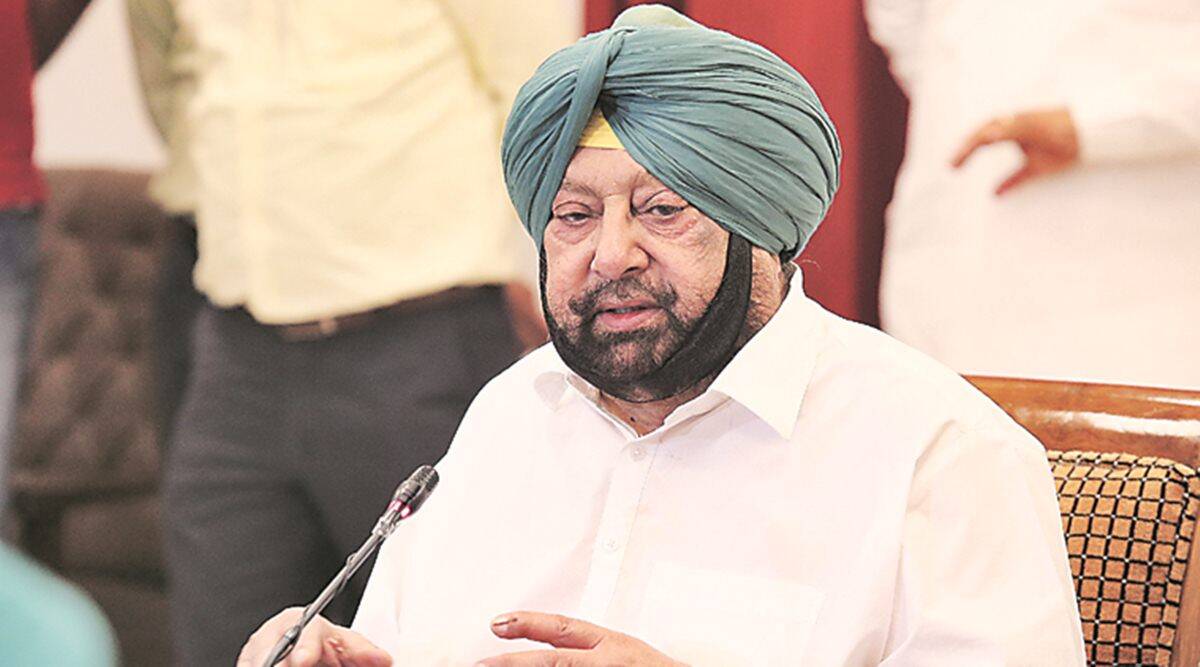 Punjab Chief Minister Capt Amarinder Singh Thursday warned that his government will move Supreme Court if the President does not give assent to the amendment bills passed by the state Assembly last year to "negate" the Centre's farm laws (Express File Photo)
Punjab Chief Minister Capt Amarinder Singh Thursday warned that his government will move Supreme Court if the President does not give assent to the amendment bills passed by the state Assembly last year to "negate" the Centre's farm laws (Express File Photo) Punjab Chief Minister Capt Amarinder Singh Thursday warned that his government will move Supreme Court if the President does not give assent to the amendment bills passed by the state Assembly last year to “negate” the Centre’s farm laws.
“We will go to the Supreme Court if the President does not give assent to the state amendment bill,” he said.
The chief minister, however, noted that the amendment bills are yet to be forwarded to the President by the Governor of Punjab despite the fact that the Vidhan Sabha had unanimously passed the Bills, with all parties voting for them. “Are we a democracy or not? It is not Governor’s business to keep sitting on the Bills. He should send them to the President of India,” Amarinder said adding it was the Governor’s duty to forward to Bills to the President for assent under Article 254 (2) of the Constitution.
Amarinder was addressing the media on the completion of four years of his government.
Claiming that he could not see a middle path to break the stalemate between the farmers and the Government of India, Amarinder Thursday urged the Centre to shun its ego and scrap the three farm legislations and bring in new laws after holding discussions with agriculturists.
“Bring new bills after discussion with farmers. Sit with them, talk to them and then bring a new bill. Why are you sitting on prestige and ego,” he asked the Centre.
“How many more farmers do you want to kill (with your adamant stand),” he asked while pointing out that 112 farmers from Punjab alone have lost their lives since the agitation began.
“The Constitution has been amended more than 100 times in the past, so why can it not be done again to scrap these laws,” he asked.
The CM said he failed to understand why the central government was trying to break the age-old time-tested relationship between farmers and arhtiyas. “The new laws are not an improvement on the existing system but will destroy the farming sector,” he said, asking where the poor farmers (comprising 75% of Punjab’s farmers) would go in case of need once the arhtiyas are replaced by faceless corporates.
“Delhi does not understand agriculture,” he said in response to a question on the new FCI policy of direct payment to farmers, which he said he was not in favour of.
In any case, he said, agriculture was a state subject and the Centre had no right to legislate on the matter. He flayed the central government for trying to destroy the federal structure enshrined in the Constitution by encroaching on state powers.
Lambasting those spreading misinformation about him being party to the decision on the farm laws as member of the Centre’s high-powered committee, he again made it clear that Punjab was not a member when the panel was initially announced and was included only later, by which time any policy decision had already been taken at the first meeting (in Punjab’s absence). The second meeting had financial agenda, and at the third, the agriculture secretary was present. “Where did I become part of the process?” he asked.